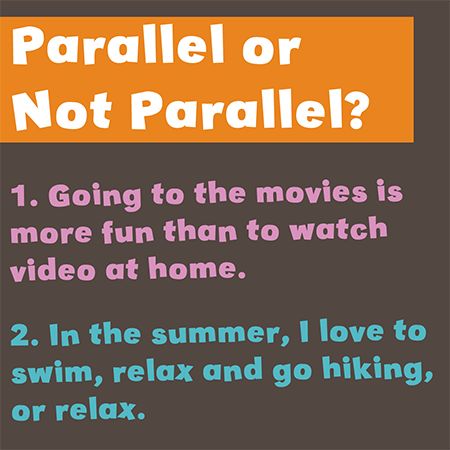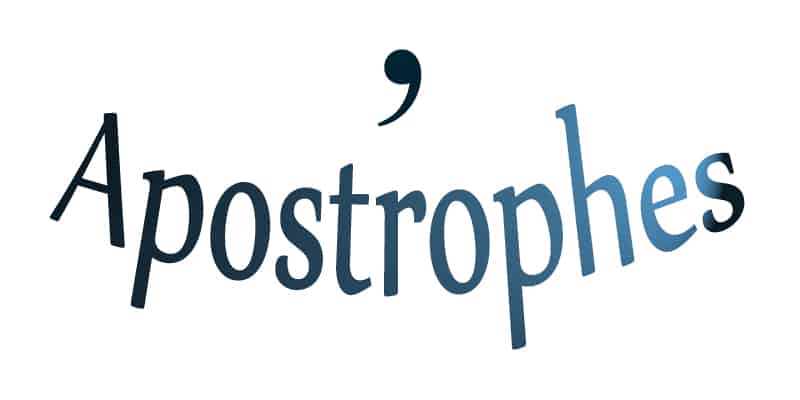Grammar Pet Peeves: Correct or Neglect?
For us writers and editors, nothing makes us cringe more than hearing a word or phrase misused in casual conversation or even in social media. Below are some grammar pet peeves that may make us turn our heads involuntarily. Should you neglect the error or correct their grammar?
- Should Of / Could Of / Would Of
- Literally, Like . . .
- Parallelism
- Split Infinitives
- Double Negatives
- Singular They
- Misplaced Pronouns
-
Who and Whom
Knock-knock.
Who’s there?
To.
To who?
No, to whom.
That knock-knock joke is actually a pretty good lesson on this subject. The rules on using who and whom can be confusing, but anyone can get them with some practice. Who is the subject form, while whom is the object form. When in doubt, answer the question with a pronoun. Whichever form sounds right is probably the answer.
Correct or Neglect? This particular pet peeve is popular even in pop culture. Try to correct it whenever you can though, even if some choose to stereotype it as a “know-it-all” move. People really need to know the difference.

- Apostrophe
- Comparatives and Superlatives
When an error is popular in spoken form, it is easy to ignore. This error is popular because both have and of sound alike.
Correct or Neglect? Definitely correct it. The modals would, could, should, must, might, and may are never combined with of. It makes zero sense.

These words have become speech fillers, similar to um and uh. What makes these fillers annoying is how much they’re taken out of context and used. Nowadays, anyone who uses literally and means it as it is will probably not be taken seriously.
Correct or Neglect? In casual conversation, let it go. People are prone to hyperbole. It makes language interesting. However, take care when using these words in written form, like, literally.

Parallelism is when a word, phrase, or clause within a sentence has repeated grammatical construction. This is especially important when writing sentences that enumerate or are composed of multiple clauses.
Incorrect: Her hobbies include writing, doing yoga, and to dance.
Correct: Her hobbies include writing, doing yoga, and dancing.
Correct or Neglect? If you can catch it during a conversation, then by all means, correct it. In written form, always correct this error. Correct faulty parallelism when you have the chance as it makes everything consistent and easy to understand.

An infinitive is a phrase that comprises to plus the base form of a verb. The error occurs when a word, such as an adverb, is placed in the middle.
Correct or Neglect? Neglect. Many now consider this grammar rule highly obsolete. Unless you’re writing something highly formal, it’s okay to just let this one go.

Double negatives are just that: two negatives placed in a single sentence, creating a positive phrase. While double negatives do add color to language or add emphasis, they also create a whole lot of confusion.
Incorrect: You can’t see nothing with these glasses.
Correct: You can’t see anything with these glasses.
Correct or Neglect? It depends. Let it go if it’s part of a character’s dialogue. Let it go when you’ve gotten the message loud and clear. However, if you are confused by someone’s statement because they used a double negative, ask for clarification. Some people intentionally use double negatives to cause confusion.

English, being a masculine-based language, often uses the pronoun him even when referring to a collective noun with no gender. Other masculine-based languages such as Spanish and French do the same and even go so far as to gender objects. In recent years, however, things have started to change, allowing the use of the singular they.
Correct or Neglect? Know your audience. Most traditionalists will likely prefer him over the singular they and so just go with the flow. The singular they is a fairly new part of the English grammar anyway. Still, whenever you can, opt for they.

No matter how long we’ve studied the English language, pronouns can still be pretty tricky. The general rule is to use the pronouns I, he, she, and we as subjects and me, him, her, and us as objects. However, when other nouns come to play, it can be pretty confusing. Here’s an example so you can visualize it.
Incorrect: Me and Anita are going to brunch this Sunday. Last week, Jessie went to the park with Marley and I.
Correct: Anita and I are going to brunch this Sunday. Last week, Jessie went to the park with Marley and me.
Correct or Neglect? Correct only in written form. Sometimes no matter how many times you correct spoken language, it just doesn’t stick. Plus, it doesn’t confuse anything anyway. This is how language evolves—by not being so strict about rules.
.jpg)
Thank goodness we don’t see what people say, right? Otherwise, apostrophes would probably be misplaced everywhere! There are many rules that befall this punctuation mark, but the general rules are that singular nouns become possessive with the addition of an apostrophe and the letter s, plural nouns become possessive with the addition of just the apostrophe, and finally (a rule that many seem to forget), apostrophes don’t make anything plural.
Correct or Neglect? Always correct. Enough said.

Some people seem to have trouble when using comparatives and superlatives. Comparatives, adjectives with -er or more, are used when comparing only two objects. Superlatives, adjectives with -est or most, are used when comparing three or more objects. Moreover, -er and more and -est and most should never be used together, not even when creating emphasis.
Incorrect: These blue walls look more better than the yellow wallpaper.
Correct: These blue walls look better than the yellow wallpaper.
Correct or Neglect? Always correct. The rules on comparatives and superlatives are already confusing. Don’t let anyone else use them multiple times in one go!

Sources:
**Disclaimer: Images are not ours. Credits to the owner.
inWrite provides editing and rewriting services for everyone. Whether you’re an author with a story to tell or a business with a product to sell, we are here to help.
You can submit a 3 page file for a free sample edit. Just send it to [email protected].